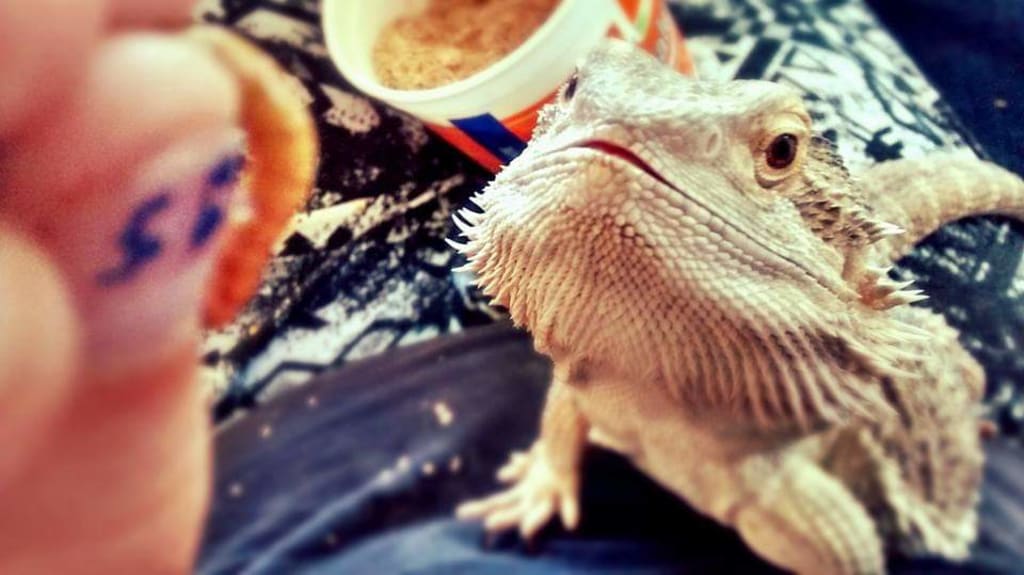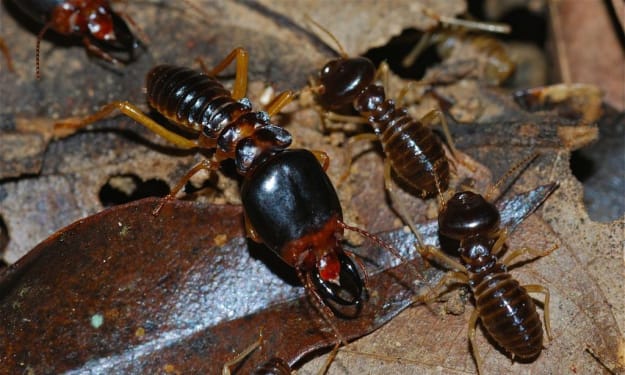
I've always loved reptiles—well, I've always loved exotic animals in general. As someone who has spent large amounts of time, energy, research, and money into caring for these creatures, I have come up with a foolproof way of integrating a new species into my collection. Here are the five steps that I take before deciding to bring home a new companion and the five steps that keep my companions happy and healthy. Keep in mind, these steps work with all animals regardless of species. I'd take the same five steps into consideration when getting a cat or a dog—just as I would if I decided to bring home an iguana.
Step One: Assessing Your Lifestyle
So you've decided you want a new pet. You've decided you want to bring home an animal to care for and love. Maybe you have decided that you have an interest in a bird. Maybe you want a tarantula. The first step in this process is to narrow it down to a specific creature you would like to bring home and decide if they are going to be a good fit in your lifestyle.
Now this is a very important step, and this is why it is step one. There are many different kinds of birds, dogs, cats, reptiles, rodents and invertebrates that you can choose from, but it is important to assess your ability to meet its basic needs at the very least. Are you a busy person? If so, an animal such as a guinea pig would be a bad idea for you as guinea pigs are known to experience depression if they're not given attention. Do you have funds to care for your animal? All pets come with an expense, but some are more expensive than others. How long do you see yourself with this animal? Most reptiles can live well over ten years if cared for; on the opposite side, a hamster usually lives 3-4 years. How much time are you willing to delegate towards caring for this creature? Understanding how you live and how an animal would fit into your lifestyle is crucial in being able to provide a healthy life for yourself and also your animal. You don't want to bring home an animal that becomes quickly overwhelming because you were not prepared.
Step Two: Research, Research, Research
Now that we have looked into what possible animals would fit well into our lifestyle, it's time to learn about your animal. The beautiful thing about the internet is that you have the ability to learn anything you've ever wanted to. Before you bring your pet home, it is important to learn the very basics of keeping them alive and thriving. Does your pet have a specific diet? Does your pet require certain temperatures? Is there a humidity requirement that comes with keeping your animal healthy? What are the major health issues this animal could potentially endure and how do you treat them? One of the biggest problems that I see—and keep in mind this is geared towards the reptile community—is beginner reptile owners keeping their reptiles in an enclosure that is too small. Not providing an appropriate environment for any animal is very unhealthy and can cause permanent effects. So please do extensive research before bringing home your new pet.
Step Three: Create the Environment
Maybe you decided to bring home a fish. Well as we all should hopefully know, your fish is not going to sit on your lap while you watch the news and sleep at the end of your bed at night. All exotic animals are going to require a space of their own. It's important to set this up prior to bringing home your animal, and I always recommend to do this step at the very minimum of three days in advance. Fish require specific PH balances in their water to be able to live healthily in their enclosure, reptiles require specific humidity and temperatures, and parrots need a large enclosure with toys and other tools for enrichment. Trust me, you don't want to be setting up an enclosure while your pet is cooped up in a PetSmart container. It just causes unnecessary stress to your new friend. The three day rule for me personally gives me time to assess the environment and make adjustments to it if necessary before bringing home a scared animal that will need to be left alone for a period of time to adjust. This is also the period of time that I gather all of the supplies I will need care for this animal such as food, supplements, cleaning supplies, etc.
Step Four: Bring Home Your Pet!
There's a reason why this is step four and not step five. Bringing home your animal is a very exciting time, and the excitement is just getting started! Go ahead, go to the store, order your pet online, do whatever steps you need to do to put this new animal in its enclosure! Spend some time watching it, allow it to get used to it's surroundings, and start slowly creating a friendship with your new friend!
Step Five: Be Your Pet's Biggest Fan
Once you get settled into the routine of caring for your pet, it almost becomes second nature. For those of us with multiple animals, it's very easy to make a chart to remember what this animal needs and when. I've had my bearded dragon for close to seven years now, and I have gotten her care down to a very easy routine that her and I both thrive in. It was when my friends started owning reptiles and asking me questions about a specific animal that I care for that I realized that with some of these questions, I knew the answer, but couldn't remember why I knew that answer, or was really unable to elaborate on why certain aspects of care was important to the specific animal. It's important to constantly keep learning about the creatures you are enjoying on a daily basis. It's time to be your pet's biggest fan. Join some groups online, continue to watch YouTube videos of your animal and the people that also keep your specific animal, and read science articles. The more you know about your pet, the more your pet will thrive in your care.
Exotic animals are so rewarding to keep, as you literally have a piece of mother nature in your care. They are fascinating creatures that create conversation in your household, cause unlikely bonds, and bridge the gap between human beings and animals. I wish everyone the best of luck in their journey with their new friends!
About the Creator
Lisa Gwyn
My passion for reptiles started when we had a pair of class geckos when I was 17. I'm 25 now and the enthusiasm has never subsided. Welcome!






Comments
There are no comments for this story
Be the first to respond and start the conversation.